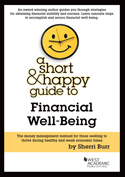by Sherri Burr
 When Anne-Marie Slaughter wrote “Why Women Still Can’t Have it All” in the July/August 2012 issues of The Atlantic, she caused quite a debate among women nationwide. Anne-Marie, a colleague from International Law circles, discussed her challenges of trying to balance being the first woman director of policy planning at the State Department in Washington, D.C., while her husband and 12- and 14-year-old sons remained in Princeton, New Jersey. Taking a government job proved so much more difficult for her work-family balance than her Princeton academic job of teaching, writing books, and giving speeches.
When Anne-Marie Slaughter wrote “Why Women Still Can’t Have it All” in the July/August 2012 issues of The Atlantic, she caused quite a debate among women nationwide. Anne-Marie, a colleague from International Law circles, discussed her challenges of trying to balance being the first woman director of policy planning at the State Department in Washington, D.C., while her husband and 12- and 14-year-old sons remained in Princeton, New Jersey. Taking a government job proved so much more difficult for her work-family balance than her Princeton academic job of teaching, writing books, and giving speeches.
The work-family balance can challenge all of us, both women and men, whether we are married or single and whether we have children or not. It is of particular concern to anyone responsible for the bulk of the house chores necessary to keep families functional. What tipped Anne-Marie over the edge was when she took a job described as “typical for the vast majority of working women (and men), working long hours on someone else’s schedule.” From reading Anne-Marie’s article, the challenges of balancing work and family life seem to boil down to an issue of how much control you have over your time.
Unlike government, corporate or many traditional jobs, the writing life has the advantage that writers completely schedule their own hours. Even when they are on a deadline, writers decide how and when to meet the deadline.
Lucky writers can produce full time and earn a living from it, or a sufficient living combined with other income. They have the flexibility to write in the early mornings, get kids off to school, write while the kids are gone, and do household chores. If a writer has a part-time job, he or she still has a great deal of flexibility to set their own schedule.
Writers with full-time jobs where the hours are set on someone else’s schedule face a more difficult situation. They often have to rise early in the morning or stay up late to produce their work. They have to accept that producing an article or book is going to take much longer than if they could write full time. This requires discipline to write on the fringes of the day when you may be thoroughly exhausted. This kind of commitment demands a project that the writer feels called to produce. Nothing short of a feeling of a calling, and the accompanying stick-to-itiveness, will get a project done for those writers with full-time jobs and families.
I had to face this challenge head-on when my nephew Terrance moved in with me for two years to attend middle school, at a time when I had received a contract for my first book. About a month into his stay, he looked at me over dinner one day and said, “You look like you need a vacation.” From you were the words that immediately surfaced in my head. I was completely exhausted.
Soon thereafter, I spotted an ad for two seminars by parenting guru John Rosemond. I signed up for both of them, and bought his book. After listening to Rosemond extol the virtues of 1950s parenting for several hours, I came home and announced to Nephew that he would now have chores. I made a list of everything it took to keep the house running, including cleaning the house, car, and yards. I explained to Nephew that since he now lived with me he would be responsible for half of all the chores. He protested initially, but agreed after I said I would pay him a weekly allowance.
After Nephew forgot a chore, I just deducted an appropriate amount from his allowance and did the chore myself. Once his paycheck shrunk, Nephew became more careful about his responsibilities. I also taught Nephew how to cook and made him responsible for preparing several meals a week. If I got really busy, I offered to pay Nephew more if he would do some of my chores. He gladly accepted. Nephew’s help proved invaluable, and I ended up publishing two books during his stay.
Can women have it all? Can any parent have it all? It depends on how much control you have over your work and family life. A writer with a full-time job who is also the maid, cook, nanny, and gardener for the family is in for a challenge. The more help you can get both internally (by giving all able-bodied occupants chores) or externally (by hiring help), the more likely you can produce great works.
 Sherri Burr is the Regents’ Professor of Law at the University of New Mexico School of Law where she teaches Entertainment Law, Intellectual Property Law, and Art Law. A graduate of Mount Holyoke College, Princeton University, and the Yale Law School, she has authored or co-authored 20 books, including A Short and Happy Guide to Financial Well-Being (West Academic, 2014). Sherri is also a long-time member of SouthWest Writers and a regular contributor to the organization’s newsletter SouthWest Sage.
Sherri Burr is the Regents’ Professor of Law at the University of New Mexico School of Law where she teaches Entertainment Law, Intellectual Property Law, and Art Law. A graduate of Mount Holyoke College, Princeton University, and the Yale Law School, she has authored or co-authored 20 books, including A Short and Happy Guide to Financial Well-Being (West Academic, 2014). Sherri is also a long-time member of SouthWest Writers and a regular contributor to the organization’s newsletter SouthWest Sage.
This article was originally published in the September 2012 issue of SouthWest Sage and is reprinted here by permission of the author.

